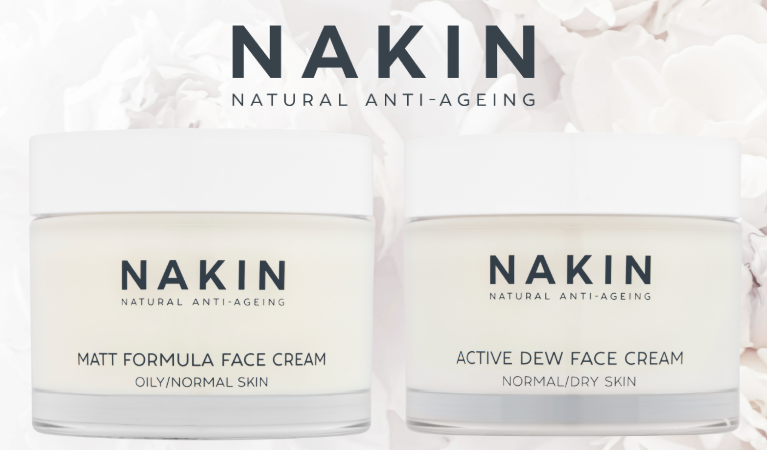How Thick Should My Moisturiser Be?

We often hear from customers asking us how thick our moisturisers are, as they like to use one that has a really thick consistency, especially if they have dry skin. The thickness of a face cream has somehow become aligned with its quality, where a thick consistency is seen as more luxurious to a thinner one. However, this is usually not the case. A thicker cream can often be filled with synthetic thickening agents, which actually have no benefits at all for skin. So instead at Nakin we recommend using a face cream moisturiser that has a lighter cream consistency, and one that is easy to smooth around the face, and is easily absorbed. When a good face cream absorbs into our skin it is able to seep into the skin cells and condition them, whereas a thick cream can often sit on the surface.
At Nakin we have our Matt Formula Face Cream for oily, normal, combination and sensitive skin, plus our Active Dew Face Cream for dry, normal, combination and sensitive skin. Both of them have the perfect consistency and are not thick or runny, they are just right to provide the face and neck with long lasting nourishment and protection. They can be found with the rest of our range here.
Using a really thick face cream might seem like the ideal solution for combating dry skin, but it is not always necessary and can sometimes be counterproductive. Thick creams can create a barrier that may clog pores, leading to breakouts and other skin issues. Additionally, they might not always penetrate deep enough to deliver the essential nutrients and hydration your skin needs. Modern skincare science has evolved to create lightweight yet highly effective moisturisers that can provide intensive hydration without the heaviness. These products often contain advanced ingredients like hyaluronic acid, which draws moisture into the skin, giving you that much-needed hydration boost without the need for a thick cream.
On top of that, thick creams can also be difficult to apply and take a long time to absorb into the skin, making them less convenient for daily use. They can leave a greasy or sticky residue, which can feel uncomfortable and may even transfer onto clothing or other surfaces throughout the day. Lightweight moisturisers, on the other hand, are typically absorbed quickly and do not leave behind any residue or shine. This makes them suitable for all skin types, including oily or acne-prone skin.
Another advantage of lightweight moisturisers is that they often come in different formulations to cater to specific skincare concerns. For example, there are moisturisers like ours with added anti-ageing ingredients like hyaluronic acid, which can help reduce the appearance of fine lines and wrinkles. Plus, lots of other ingredients to protect against environmental stressors.


Leave a comment